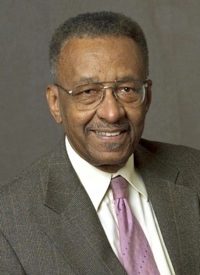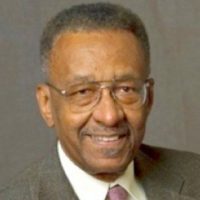
Another black attacker of the tea party movement is Rep. Maxine Waters, who told her constituents: “This is a tough game. You can’t be intimidated. You can’t be frightened. And as far as I’m concerned, the tea party can go straight to hell.” “Let us all remember who the real enemy is. And the real enemy is the tea party,” reminded Rep. Frederica Wilson, D-Fla. The Rev. Jesse Jackson said the tea party should be called the “Fort Sumter tea party that sought to maintain states’ rights and slavery.” Rep. Alcee Hastings, D-Fla., in telling a job fair audience to register to vote, said, “Turn the tea party upside down!”
What about Hastings’ call for blacks to register to vote? What has it meant? For several decades, blacks have held significant political power, in the form of being mayors and dominant forces on city councils in our major cities, including Philadelphia, Detroit, Washington, Memphis, Atlanta, Baltimore, New Orleans, Oakland, Newark, Cincinnati and many others. In most of these cities, blacks have served as school superintendents, school principals and chiefs of police. Plus, there’s precedent setting black political power at the national level, with 39 black congressmen and a black president.
Here’s my question: What would you think of someone who claimed that black political power has yielded great results? In these cities where blacks dominate the political machinery, black academic proficiency is on a par with the rest of the nation. Black families are more stable and illegitimacy and welfare dependency are much lower than they were when whites dominated the political machinery of these cities. Also, since blacks have replaced white mayors and city councils, black citizens are murdered less and are far safer on the streets and in their homes. Even more noticeable is the fall in unemployment, particularly since the nation elected a black president. You say, “Williams, anyone making such statements suffers from a special kind of lunacy and ought to be put into an insane asylum!”
It doesn’t demean black political achievement to ask what black political power means for the lives of ordinary black people. Put another way, is political power a necessary condition for economic power? Let’s look around.
Japanese- and Chinese-Americans faced gross discrimination in our country, but when’s the last time you heard them worrying about how many mayors and congressmen they have? Are they in a tizzy over the tea party’s call for constitutional government, reduced spending and a balanced budget? By the way, Japanese- and Chinese-Americans have median family incomes higher than white Americans despite having no political power, even in areas where they are most numerous.
Let me be clear. I am not stating a causal link between the fact of black political power and the poor living conditions of so many blacks in our urban centers. I’m simply offering evidence that the expectation that black political power will translate into socio-economic well-being for the ordinary black citizen is apt to be disappointing. Political power empowers — and even enriches — the political elite; for them, getting out their constituent vote is the be-all and end-all. It’s the economic arena, featured by personal liberty, that best serves the ordinary person.
As long as black politicians can successfully run a rope-a-dope on their constituents by keeping them focused on allegations of white racism and telling them that salvation lies in voting for them, little good will come to their poorest constituency.
Walter E. Williams is a professor of economics at George Mason University. To find out more about Walter E. Williams and read features by other Creators Syndicate writers and cartoonists, visit the Creators Syndicate Web page at www.creators.com.
COPYRIGHT 2011 CREATORS.COM



